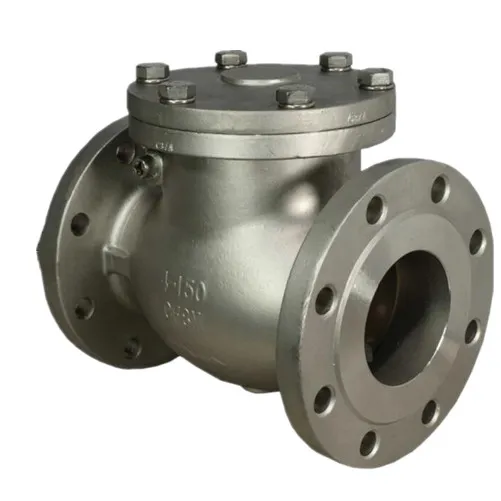Mobile:+86-311-808-126-83
Email:info@ydcastings.com
Design and Functionality of Centrifugal Fan Impellers in Mechanical Systems
The Importance of Centrifugal Fan Impellers in Modern Engineering
Centrifugal fans play a crucial role in various industrial applications, and the impeller is undoubtedly the heart of these fans. Whether it's for ventilation, material conveying, or climate control, the design and efficiency of the centrifugal fan impeller are vital for optimizing performance and energy consumption. In this article, we’ll explore the design aspects, operational mechanics, and applications of centrifugal fan impellers, highlighting their significance in modern engineering.
Understanding Centrifugal Fans and Their Impellers
Centrifugal fans operate by converting rotational kinetic energy from a motor into air movement. They achieve this through a rapidly spinning impeller, which draws air into the fan and accelerates it outward, increasing air velocity. The impeller design, therefore, significantly affects the fan’s efficiency, pressure buildup, and overall air delivery performance.
Impellers are generally categorized based on their blade configurations, which can include backward-curved, forward-curved, and radial designs. Each configuration has its distinct advantages. For example, backward-curved impellers are known for their high efficiency and ability to handle a wide range of airflow rates, making them suitable for applications that require consistent performance.
Key Design Considerations
When designing a centrifugal fan impeller, several factors must be taken into account. One of the main considerations is the material used in the construction. Common materials include aluminum, plastic, and steel, each offering different properties in terms of weight, durability, and resistance to corrosion or wear.
Blade design is another critical aspect. The shape and angle of the blades can significantly influence the fan's efficiency and noise levels. Engineers typically utilize computational fluid dynamics (CFD) simulations to optimize blade profiles, ensuring that they provide the desired airflow while minimizing turbulence and noise.
centrifugal fan impeller

Moreover, the diameter of the impeller affects both airflow and pressure. Larger impellers can move more air at lower speeds, while smaller impellers can achieve higher velocities but may struggle with pressure generation. This trade-off must be carefully balanced according to the specific application requirements.
Applications of Centrifugal Fan Impellers
Centrifugal fan impellers find their applications across various industries. In HVAC systems, they are used for circulating air in buildings, ensuring proper ventilation and temperature control. In the manufacturing sector, these impellers are vital for exhausting fumes, dust, and other airborne particulates, enhancing workplace safety and compliance with health regulations.
They are also widely used in the agricultural industry, where they aid in drying grains and controlling the climate inside storage facilities. Additionally, in automotive applications, centrifugal fans facilitate engine cooling and cabin ventilation, contributing to overall vehicle performance and comfort.
Energy Efficiency and Sustainability
As industries increasingly focus on sustainability, the importance of energy-efficient centrifugal fan impellers cannot be overstated. By improving the aerodynamic performance of impellers, manufacturers can reduce energy consumption, resulting in lower operational costs and a diminished environmental footprint. Advanced designs that focus on maximizing efficiency without compromising airflow are in high demand, underscoring the vital role of innovation in this field.
Conclusion
Centrifugal fan impellers are essential components that facilitate airflow in an array of applications, significantly impacting efficiency, performance, and environmental sustainability. As technology continues to evolve, the focus on optimizing impeller design will remain critical. By understanding the mechanics and applications of these impellers, engineers can contribute to the development of more effective and sustainable solutions in various industries. The future of centrifugal fan technology will undoubtedly hinge on the ingenuity and precision of impeller designs.
-
Understanding Metal Casting TechniquesNewsApr.02,2025
-
Understanding Exhaust Manifolds for Enhanced Engine PerformanceNewsApr.02,2025
-
The World of Metal FabricationNewsApr.02,2025
-
Key Components for Pump and Turbo EfficiencyNewsApr.02,2025
-
Essential Tools for Automotive Maintenance and RepairNewsApr.02,2025
-
Durable Valve Components for Effective Water ManagementNewsApr.02,2025











